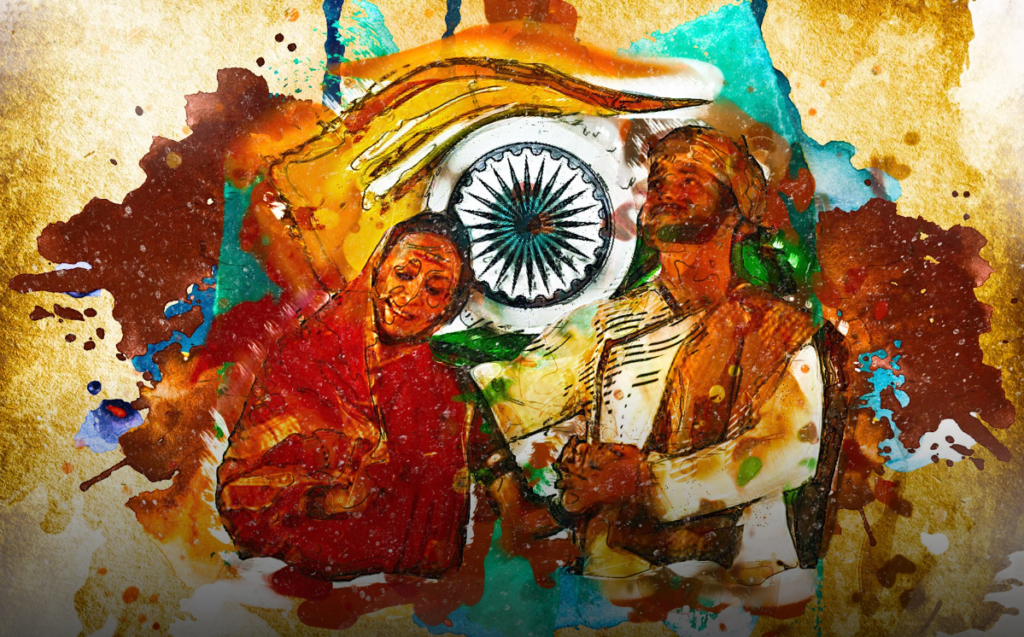Education is the cornerstone of any progressive society, but in 19th-century India, it was a privilege reserved for a select few. Amidst the deeply entrenched caste and gender-based discrimination of the time, two extraordinary individuals, Savitribai Phule and Jyotirao Phule, emerged as champions of education for the oppressed. Their contributions have left an indelible mark on India’s educational and social landscape, inspiring generations to follow.

Breaking Barriers: The Context of 19th-Century India
In pre-independence India, education was a luxury denied to women and marginalized communities, especially Dalits. Social norms restricted women to household roles, while lower-caste communities faced systemic oppression. Savitribai Phule and Jyotirao Phule dared to question these norms, using education as a tool for empowerment and change.
Savitribai Phule: India’s First Female Teacher
1. Establishing the First Girls’ School
In 1848, with Jyotirao’s unwavering support, Savitribai Phule became the first female teacher in India and co-founded the country’s first school for girls in Pune. At a time when educating girls was considered taboo, this school provided a safe space for learning, focusing on literacy and practical skills.
2. Battling Social Prejudice
Savitribai faced severe opposition, often enduring verbal abuse and even physical attacks for her efforts. Undeterred, she continued her mission, carrying extra saris to school to change after being pelted with mud by detractors.
3. Writing for Education
Savitribai was not just a teacher but also a poet and writer. Her collections, such as “Kavya Phule”, emphasized the importance of education and equality, particularly for women and marginalized groups.
Jyotirao Phule: The Architect of Equal Education
1. Founding the First School for Girls and Dalits
Jyotirao’s vision of an egalitarian society led him to establish the first school for girls and Dalits in 1848. His revolutionary ideas emphasized that education should transcend caste and gender barriers.
2. Advocating for Social Justice
Jyotirao understood that education alone could dismantle the rigid caste system. He championed the rights of women and Dalits, advocating for widow remarriage, opposing child marriage, and providing shelter for abandoned widows.
3. Writing for Equality
In works like “Gulamgiri” (Slavery), Jyotirao highlighted the oppression of marginalized communities and the role of education in achieving liberation. His writings served as a rallying cry for social reform.
Their Combined Legacy: A Partnership That Changed India
1. Empowering Marginalized Communities
Together, the Phules ran several schools and initiatives aimed at uplifting the downtrodden. Their work directly benefited hundreds of girls and Dalits, creating opportunities that were previously unimaginable.
2. Pioneering Modern Social Work
They established the “Balhatya Pratibandhak Griha” (Infanticide Prevention Center) to care for pregnant widows and prevent the practice of killing female infants. Their holistic approach to reform—combining education, healthcare, and social services—was revolutionary for its time.
3. Inspiring Future Reformers
The Phules’ efforts laid the foundation for future social and educational reform movements in India. Their work inspired leaders like Dr. B.R. Ambedkar, who carried forward their vision of equality and justice.
The Impact of Their Work on Modern India
The contributions of Savitribai and Jyotirao Phule resonate even today. By challenging the status quo, they paved the way for:
- The inclusion of women and marginalized communities in formal education.
- Legal and societal reforms that addressed caste and gender inequalities.
- A broader recognition of education as a fundamental right for all.
Organizations like GirlsFirst Foundation carry forward their legacy by ensuring underprivileged girls in India receive quality education, mentorship, and opportunities to thrive.
Continuing the Mission: What We Can Do Today
The Phules’ vision remains as relevant as ever. While their efforts initiated change, there is still work to be done to achieve true equality in education. We can contribute by:
- Supporting initiatives that provide education for underprivileged children.
- Advocating for inclusive policies that address caste and gender disparities.
- Volunteering or donating to organizations working for educational equity, such as GirlsFirst Foundation.
Conclusion
Savitribai and Jyotirao Phule were more than educators; they were architects of social change. Their relentless pursuit of equality through education is a testament to the transformative power of knowledge. As we celebrate their legacy, let us also commit to building upon it, ensuring that every child, regardless of caste or gender, has access to the education they deserve.
Let us honor their legacy by empowering the next generation. Together, we can create a world of equality and opportunity for all.
